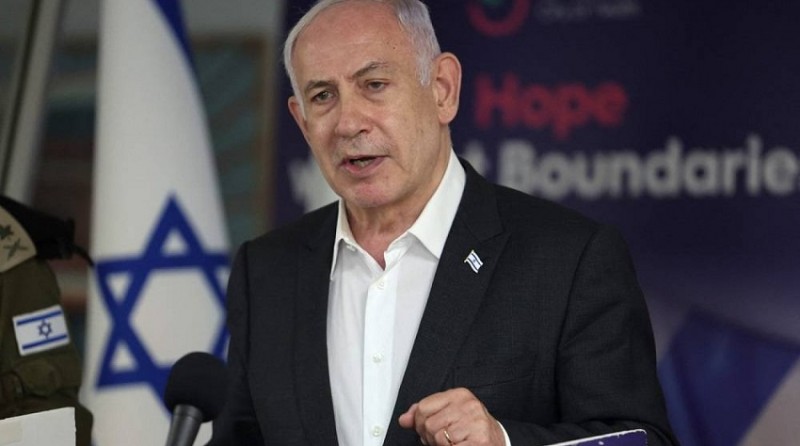
Israeli Prime Minister Benjamin Netanyahu disbanded his war Cabinet on Monday, a move that consolidates his influence over the Israel-Hamas conflict and likely reduces the prospects of a cease-fire in the Gaza Strip anytime soon.
The step was announced by Netanyahu after his chief political rival, Benny Gantz, withdrew from the three-member war Cabinet. Gantz, a retired general and member of parliament, was widely seen as a more moderate voice in the decision-making process.
Moving forward, major war policies will now be solely approved by Netanyahu's security Cabinet, a larger body dominated by hard-liners opposed to the U.S.-backed cease-fire proposal and in favor of continuing the conflict.
An Israeli official, speaking on condition of anonymity, noted that Netanyahu may consult with close allies in ad-hoc meetings to discuss some decisions. These meetings could potentially mitigate the influence of the hard-liners. However, Netanyahu himself has shown little enthusiasm for the cease-fire plan, and his reliance on the full security Cabinet could allow him to prolong decision-making.
Background and Implications
The war Cabinet was formed after an October 7 Hamas attack on Israel, with Gantz joining Netanyahu and Defense Minister Yoav Gallant in a display of unity. Gantz insisted that a small decision-making body guide the war strategy to sideline far-right members of Netanyahu's government.
Gantz left the Cabinet earlier this month after tensions escalated over Israel's strategy in Gaza. He criticized the lack of progress in bringing home Israeli hostages held by Hamas and accused Netanyahu of prolonging the conflict to avoid new elections and a corruption trial. Gantz called on Netanyahu to endorse a plan that would rescue the captives and end Hamas rule in Gaza. When Netanyahu did not express support for the plan, Gantz announced his departure, citing "fateful strategic decisions" being "met with hesitancy and procrastination due to political considerations."
Impact on Israel's Wartime Policies
The disbanding of the war Cabinet further distances Netanyahu from centrist politicians more open to a cease-fire deal with Hamas. Months of cease-fire talks have failed to find common ground between Hamas and Israeli leaders. Both sides have been reluctant to fully endorse a U.S.-backed plan that would return hostages, pave the way for an end to the conflict, and begin the rebuilding of Gaza.
Netanyahu will now rely on his security Cabinet members, some of whom oppose cease-fire deals and support reoccupying Gaza. After Gantz's departure, Israel's ultranationalist national security minister, Itamar Ben-Gvir, demanded inclusion in a renewed war Cabinet. Monday's move could help keep Ben-Gvir at a distance, but it cannot sideline him altogether.
The move also allows Netanyahu leeway to extend the conflict to maintain power. Critics accuse him of delaying resolution, which could lead to an investigation into the government's handling of the October 7 incident and potentially new elections at a time when his popularity is low.
Gideon Rahat, chairman of the political science department at the Hebrew University of Jerusalem and a senior fellow at the Israel Democracy Institute, commented, "It means that he will make all the decisions himself, or with people that he trusts who don't challenge him. And his interest is in having a slow-attrition war."